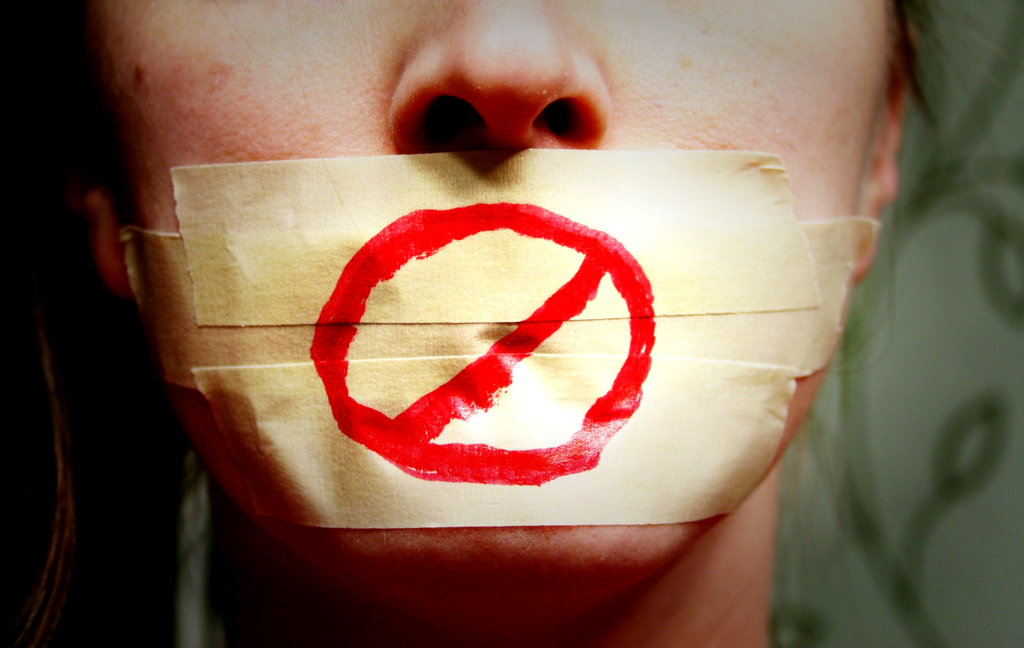Kateryna Zagorulko
Featured Image: How far is too far? | Courtesy of Jennifer Moo via Flickr
York, like many other post-secondary institutions, works to promote a diverse and inclusive campus that allows all students to learn and grow in a safe environment. However, in our pursuit for an environment free from stigma and aggression, we often don’t realize the insidious byproduct that manifests itself. When these “safe spaces” are developed, we must ask ourselves this: who are they made to protect? Indeed, these areas are places in which students are safe from homophobic, transphobic, Islamophobic, fat-phobic, and a plethora of other “-phobic” language that can cause emotional distress. The issue here is that this blanket protection against what some deem “problematic” speech, or even “hate speech,” has begun to smother intellectual debate. It is becoming far more difficult to express one’s own opinion, without the accusation of being something-phobic or violating another student’s emotional safety.
The fine line between the individual and their ideology are being muddled in our predominantly left-leaning, progressive, university campuses. All too often, students are finding themselves in situations where their abstract discussions about complex and often uncomfortable topics are being perceived as an attack against another student’s personal beliefs. In other words, any critique or contradiction of one’s own intellectual opinions is now seen as an attack on their fundamental being. This sets a dangerous precedent that encourages a small group of outspoken students, who are often identified as “social justice warriors,” to silence dissent and penalize students who may share thoughts that are perceived as conservative.
Those in charge of running our universities, the faculty and administration, seem to do little to protect the rights of their students with opinions that go against the current norm—either because they, too, fear the repercussions of eliciting the unholy rage of these hyper-sensitive and over-righteous groups, or they are colluding with or failing miserably to hide their unfair bias for their leftist comrades.
Universities were founded on the basis of academic exploration. They are meant to push the boundaries of what we perceive to be true, ask hard questions about why we believe what we believe, and encourage us to strive to reach a more profound understanding of the world we live in. And yet, these values and principles seem to take a backseat in favour of a system in which students are expected to police their language in accordance with the current politically-correct rhetoric.
If one doesn’t agree with another’s opinion, it is much more constructive to discredit them through debate rather than assassinating their character with toxic, unfounded labels such as “racist” or “bigot.” One should deconstruct the other’s arguments with a more thought-out and academically-sound argument of their own. Take down the idea, not the person. It is only in this way that we preserve the principles of intellectual freedom by which our university systems were founded upon. Safe spaces can indeed be useful tools that allow students to speak their mind without social repercussion—however, that is only if they are made to protect the intellectual expression of all students, rather than the personal comfort of some.





I wholeheartedly agree with you Ms Zagorulko.
As another op-ed here on the Excalibur recently asserted, “School should be a place for exciting experiences, and not a place for worry or trauma”. This seems to be the trend with open-minded students who’ve come entitled (as they should) to enjoy their campus experience. New ideas should be traumatic, and should shock core beliefs as the principle purpose of an education. That bravery to confront the fiction of Santa Clause should be constantly promoted even after childhood, but we seem to want to stultify this bravery after high school. Students want to voluntarily police (under the mask of diversity, multiculturalism, and equality) the notion, “what you thought reality was before now is now enough, and should be protected against those who wish to dispel your reality.”
Like you said, perhaps the admin are afraid of going against the grain. Not everyone wants the burdensome role of a Jordan Peterson or public intellectual. But maybe York faculties should begin having more public cross-disciplinary debates for the sake of the students. It should be good for us to learn how to have a nuanced conversation without resorting to shrieks and slurs. It would be the best-case scenario for students to hear the best articulated professors make their arguments on these “-phobic” topics. Perhaps the student population is mature enough to decide (for themselves) that a speaker doesn’t have to litter caveats and clauses to pander to their identities and sensitivities, and maybe the students should trust that others are also capable of deciding for themselves.